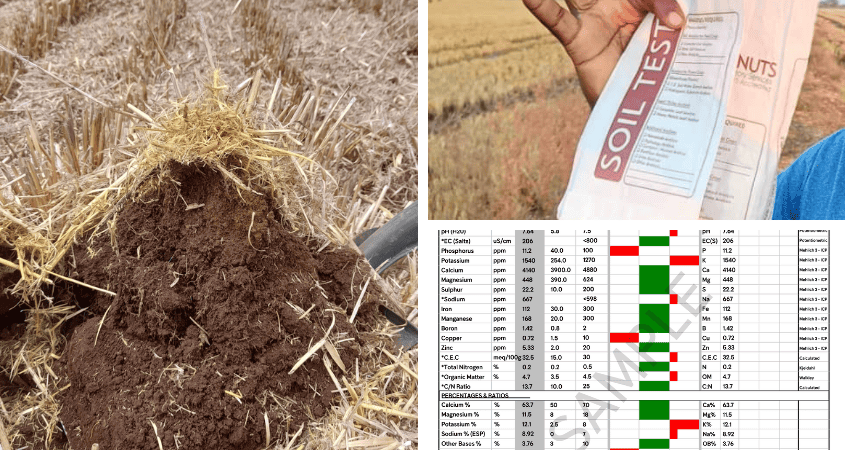
Chemical soil health components influence plant nutrient uptake, soil fertility levels, and fertilizer use efficiency by crops. The soil’s chemical properties include
Soil pH measures the level of acidity or alkalinity in the soil. It’s a crucial indicator as different crops have specific pH preferences for optimal growth. For instance, blueberries thrive in acidic soils, while asparagus prefers alkaline conditions. Proper pH levels are essential because they affect nutrient availability. When pH is too high or too low, certain nutrients become less accessible to plants, leading to deficiencies and reduced yields. By optimizing soil pH, the program ensures that plants can access essential nutrients effectively.
CEC measures the soil’s ability to retain and exchange cations, positively charged ions like calcium, magnesium, and potassium. Soils with a higher CEC can hold more nutrients, making them available to plants. High CEC soils are better at retaining essential nutrients, reducing the risk of nutrient leaching, and ensuring a steady supply of nutrients to crops throughout the growing season.
Adequate levels of both macro and micronutrients are vital for plant growth, as they serve as building blocks for plant tissues and essential components of biochemical processes. Nutrient deficiencies can lead to stunted growth, lower yields, and increased susceptibility to diseases and pests.
Soil organic matter, such as decomposed plant material (humus), plays a critical role in improving soil structure, water-holding capacity, and microbial activity. It serves as a source of soil carbon and other nutrients for plants and enhances the overall health of the soil ecosystem.
Soil salinity is the measure of salts in the soil. Excess salt can be detrimental to plants, hindering water uptake and leading to salt stress.
These chemical soil health indicators are integral to the Cropnuts Soil Health Care Program 2.0, as they provide growers and agronomists with critical insights into soil fertility and nutrient management. By addressing these chemical aspects of soil health, the program helps optimize nutrient availability, enhance plant nutrition, and ultimately increase crop yields while ensuring sustainable and environmentally responsible agriculture.
savesoil #soilhealth #soilscience
Order our services and get to know how to improve your soil for better yeilds.